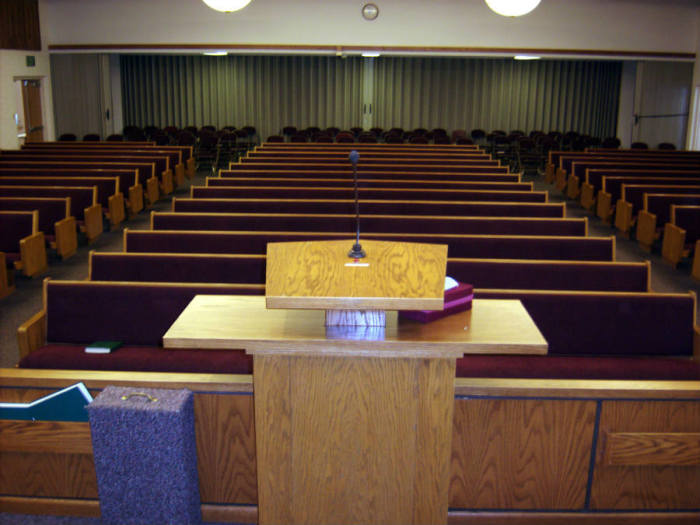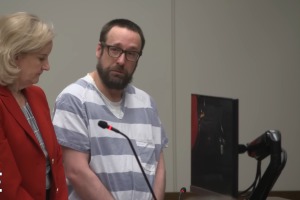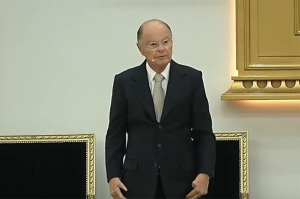Apostle Paul 'abhorred laziness in the pastorate,' says Pastor David Mathis

The Apostle Paul abhorred lazy pastors, says Minnesota-based Pastor David Mathis, who's also the executive editor of the popular theology website Desiring God.
Drawing from the New Testament writings of Paul of Tarsus, especially First and Second Timothy, Mathis, a pastor of Cities Church in Minneapolis-St. Paul, explained that Paul “abhorred laziness in the pastorate” in a piece titled “The Plague of Lazy Pastors.”
“Pastoral work, and good teaching in particular, is hard labor — labor that is not only cursed and opposed, but specifically targeted by Satan, who loves to focus his attack on opposing lieutenants,” wrote Mathis.
“If he can cut off the supply lines and defenses, he will soon overwhelm and defeat the ground troops.”
An important part of this hard work for pastors is “preaching and teaching,” which Mathis described as “the central labor of pastoral ministry.”
“A pastor who doesn’t emotionally sweat and strain over his words is a pastor falling short of his calling. God means for pastors to be workers at their teaching,” continued Mathis.
“Good teaching doesn’t just spill over. It requires diligence and vigilance. ‘Keep a close watch on yourself and on the teaching’ (1 Timothy 4:16).”
While noting that “good pastors are not lazy,” Mathis warned that the hard work of pastors can sometimes come from “a sinful inward disposition.”
“All of us, pastors included, can work hard for the wrong reasons. For selfish ambition. For mere kudos and applause. From deep emotional insecurity,” Mathis cautioned.
“The first word to every pastor, as to every Christian, is not, Work, but, He worked. It is finished.”
Mathis concluded by stressing that hard work can lead to “a happier soul” and make pastors “a better vessel for the joy of the church.”
“You will not find the happiest people in the world lying on couches. Pastors, let’s show that world that one of the most reliable places to find them is in pulpits,” concluded Mathis.
Over the years, church leaders have examined what constitutes a sufficient workweek for pastors. Thom Rainer, CEO of Church Answers and former head of LifeWay Christian Resources, wrote in 2014 that there are many “myths” about the typical pastor’s work ethic.
“I will readily admit I've known some lazy pastors, but no more so than people in other vocations,” wrote Rainer at the time, adding, “there are many more workaholic pastors than lazy pastors.”
“Sermon preparation, counseling, meetings, home visits, hospital visits, connecting with prospects, community activities, church social functions, and many more commitments don't fit into a 40-hour workweek.”
Rainer also wrote that he believed “pastors have one of the most difficult and stressful jobs on Earth,” pointing to the many personal obligations they take on when overseeing a church.
“… it is an impossible job outside of the power and call of Christ. It is little wonder that too many pastors deal with lots of stress and depression,” continued Rainer.
“Pastors and church staff are my heroes. They often have a thankless job with long and stressful workweeks. I want to be their encourager and prayer intercessor. I want to express my love for them openly and enthusiastically.”
Darryl Dash, pastor at Liberty Grace Church in Toronto, Ontario, Canada, and a church planting expert, warned in a 2013 blog entry for The Christian Post that the “pastorate is a place where lazy people can hide.”
“I've met some lazy pastors, and they do need a kick in the posterior. And yes, we shouldn't expect more of others than we ourselves are ready to give,” said Dash.
However, Dash also believed pastors should not “buy into a lifestyle that's driven by busyness and the lack of healthy rhythms.”
“For instance, if nobody in the church is taking a weekly Sabbath, the answer isn't for the pastor to stop taking a Sabbath. Instead, the pastor should be model what it's like to pause, rest, and find refreshment one day a week,” continued Dash.
“… what we need — not just pastors, but all of us — is to discover how to work hard, but also how to love our families, abide in Christ, and live on mission in the everyday rhythms of life.”





























